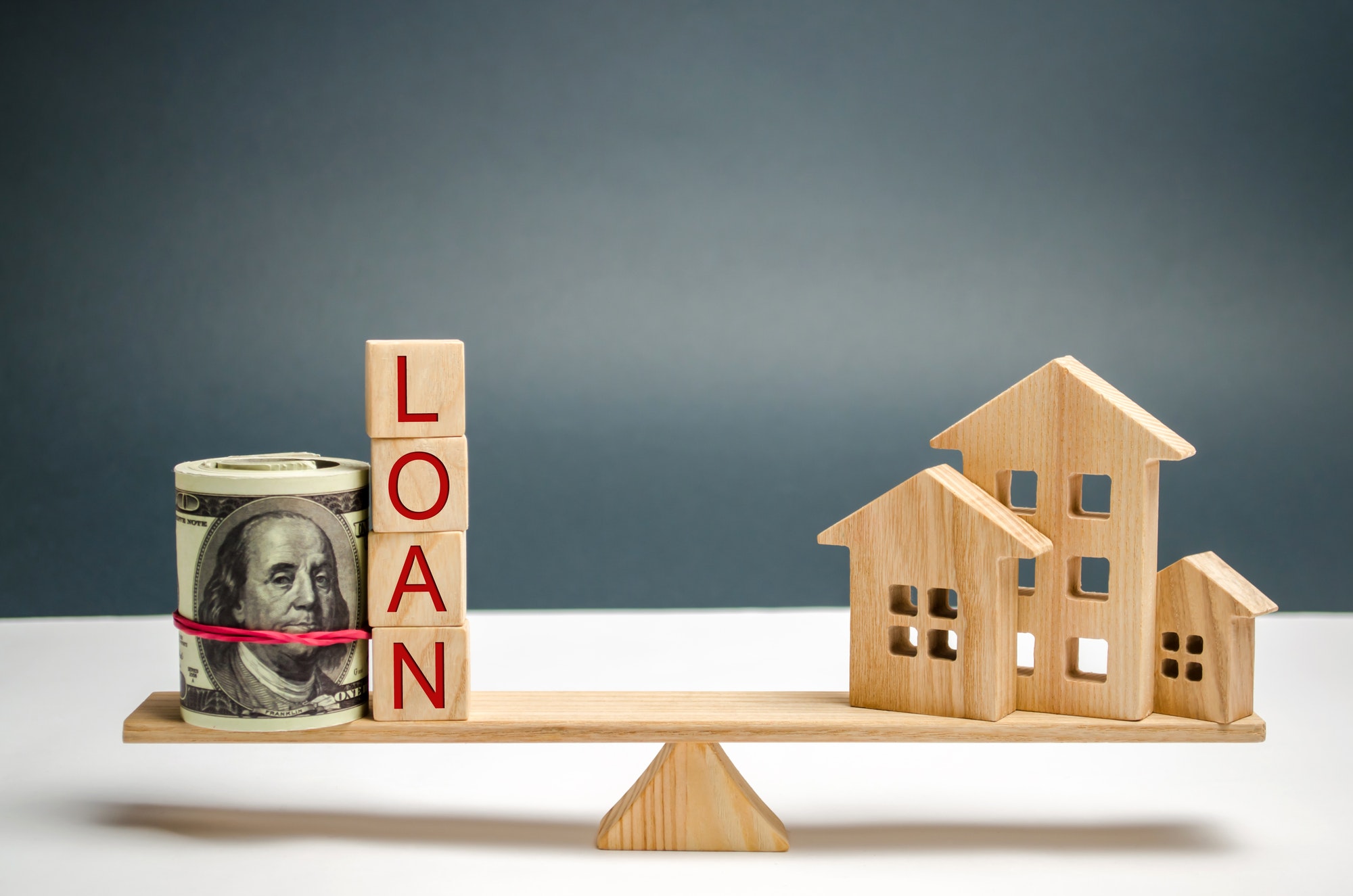Introduction
Wisconsin residents who are looking to purchase or renovate a home may find the FHA 203k loan to be a viable financing option. This loan program, offered by the Federal Housing Administration (FHA), is specifically designed to assist homebuyers in purchasing a property that needs repairs or renovations. In this guide, we will explore benefits and requirements of FHA 203k loan wisconsin and the unique advantages fha loan wisconsin program tailored for property improvements.
What is an FHA 203k Loan?
The “203k” in the FHA 203k loan refers to Section 203(k) of the National Housing Act, which outlines this particular loan program. It’s aimed at encouraging the revitalization and renovation of older or distressed properties by providing a convenient financial solution that includes the costs of home improvement or rehabilitation.
Standard 203k and Limited 203k. The Standard 203k is suitable for more extensive renovations, structural repairs, and projects exceeding $35,000. On the other hand, the Limited 203k is designed for smaller-scale renovations, typically capped at $35,000, focusing on minor upgrades and improvements.
How Does It Work?
The FHA 203(k) loan works by allowing borrowers to finance both purchases of the cost of renovations into a single mortgage. Here’s a breakdown of how it typically operates:
- Identifying a Property: Borrowers look for properties that require renovation or repairs.
- Loan Application: Borrowers apply for an FHA 203(k) loan through an approved lender. The application process involves providing details about the property, proposed repairs, and personal financial information.
- Property Appraisal and Inspection: An FHA-approved appraiser assesses the property’s current value and determines its post-renovation value. The appraiser also identifies the necessary repairs and estimates their costs.
- Consultant or Contractor Selection: For standard 203(k) loans, borrowers hire a HUD-approved 203(k) consultant or contractor to create a detailed proposal outlining the scope of work.
- Renovation Process: Borrowers start the renovation or repair work, following the guidelines outlined in the project proposal. The 203(k) consultant or contractor oversees the project, ensuring compliance with FHA standards.
- Mortgage Payments: After the project is complete, borrowers resume making regular mortgage payments, now including the financed renovation costs.
Understanding FHA Loans in Wisconsin
Here are some concise points highlighting key aspects of FHA loans in Wisconsin:
- Low Down Payment: FHA loans typically require a down payment as low as 3.5% of the home’s purchase price, making homeownership more accessible.
- Credit Flexibility: These loans are more forgiving of lower credit scores compared to conventional loans, allowing borrowers with lower scores to qualify.
- Property Eligibility: FHA loans cover various property types, including one-to-four-unit dwellings and certain condos, but they must meet specific FHA property standards.
- Mortgage Insurance Premiums (MIP): Borrowers pay an upfront premium at closing and ongoing annual premiums as part of their mortgage payments, protecting the lender against borrower default.
- FHA 203(k) Loans: These allow financing for both the purchase and renovation costs of a property within a single mortgage, catering to those interested in renovating or buying fixer-uppers.
- Eligibility Criteria: Criteria include credit score, debt-to-income ratio, stable income history, and property standards outlined by the FHA.
- Benefits: The benefits include combined financing, low down payment, property flexibility, versatile repairs, and options for various property types and renovation projects.
- Financial Consideration: Understanding eligibility criteria and evaluating the long-term financial implications is crucial before pursuing an FHA loan in Wisconsin.
Advantages of FHA 203k Loans in Wisconsin
Here are some key advantages of FHA 203k loans, specifically in Wisconsin:
- Combined Financing: FHA 203k loans allow borrowers to finance both the purchase or refinance of renovation costs within a single loan, streamlining the financing process.
- Low Down Payment: With a down payment as low as 3.5% of the total combined purchase price and renovation costs, these loans make homeownership and renovations more accessible.
- Property Flexibility: These loans enable buyers to consider properties that need repairs or upgrades, expanding options and potentially allowing buyers to afford homes in better locations that might need work.
- Streamlined Process: The Limited 203k option simplifies the application and approval process compared to the Standard 203k, making it more feasible for smaller-scale renovations.
- Increased Property Value: Renovations financed through FHA 203k loans can potentially enhance the property’s value, improving its marketability and equity.
- Guidance and Oversight: For Standard 203k loans, working with a HUD-approved consultant ensures that the renovation process complies with FHA guidelines, providing expertise and oversight.
- Owner-Occupied Properties: These are available for properties intended to be the borrower’s primary residence, supporting homeowners who plan to live in the renovated property.
Eligibility Criteria for FHA 203k Loans in Wisconsin
here are additional key points to consider about FHA 203k loans in Wisconsin:
- Property Eligibility: FHA 203k loans apply to various property types, including single-family homes, and multi-unit properties. However, they must meet specific FHA standards regarding safety, habitability, and structural integrity.
- Renovation Scope: These loans cover a wide range of renovations, from basic repairs to more extensive improvements. They can encompass structural alterations, cosmetic updates, modernization, or making a property more energy-efficient.
- Streamlined Application: The Limited 203k option has a simplified application process compared to the Standard 203k, often requiring fewer documents and approvals for smaller-scale renovations.
- Consultant Involvement: For significant renovations under the Standard 203k, a HUD-approved consultant is typically required. They play a crucial role in overseeing the renovation process, ensuring compliance with FHA guidelines.
- Loan Disbursement: Payments are made to contractors in stages, usually after specific renovation milestones are completed, following FHA guidelines and inspections.
- Appraisal Process: An FHA-approved appraiser assesses the property’s value before and after renovations. The loan amount is based on the post-renovation value, which helps determine the maximum loan limit.
- Interest Rates: FHA loans often have competitive interest rates, but individual rates can vary based on the borrower’s credit history and lender specifics.
Types of Repairs and Renovations Covered by FHA 203k in Wisconsin
FHA 203(k) loans cover a broad spectrum of repairs and renovations in Wisconsin, allowing borrowers to address various property improvement needs. Here are the types of repairs and renovations typically covered under this program:
- Structural Alterations: This includes major repairs or changes to the property’s structure, such as repairing the foundation, roof, or load-bearing walls.
- Cosmetic Upgrades: FHA 203(k) loans also cover cosmetic improvements like flooring, painting, new appliances, and aesthetic enhancements to enhance the property’s appeal.
- Plumbing and Electrical Work: Renovations involving plumbing or electrical systems are eligible. This might encompass repairing or replacing plumbing fixtures, wiring, or electrical panels.
- Accessibility Improvements: Making the property more accessible for people with disabilities, such as installing ramps, widening doorways, or modifying bathrooms, can be financed through these loans.
- Energy Efficiency Enhancements: The FHA 203(k) program encourages energy-efficient improvements, including upgrading insulation, installing energy-efficient windows or doors, or upgrading HVAC systems.
- Appliance Replacement: Repairing or replacing essential appliances like water heaters, HVAC units, or furnaces can also be included.
Process of Applying for FHA 203k Loan in Wisconsin
Applying for an FHA 203(k) loan in Wisconsin involves several steps:
- Preparation and Research: Understand your renovation needs and budget. Identify properties that need renovation and meet FHA guidelines. Research FHA-approved lenders in Wisconsin.
- Find an FHA-Approved Lender: Select a lender experienced in FHA 203(k) loans. They will guide you through the application process and provide the necessary forms and information.
- Initial Consultation: Schedule a meeting with the lender to discuss your renovation plans, loan options, eligibility criteria, and requirements.
- Property Identification: Choose a property and have it appraised by an FHA-approved appraiser. The appraiser assesses the property’s current condition, determines its value, and estimates renovation costs.
- Create a Detailed Renovation Plan: For a Standard 203(k) loan, work with a HUD-approved consultant or contractor to create a detailed proposal outlining the scope of renovations, costs, and timeline.
- Complete the Loan Application: Submit the loan application, providing details about the property, proposed renovations, personal financial information, credit history, and income verification.
- Loan Processing: The lender reviews your application, credit report, renovation plans, and property appraisal. They might request additional documentation for underwriting.
Interest Rates and Requirements for FHA 203k Loans in Wisconsin
Interest rates for FHA 203(k) loans in Wisconsin can vary based on market conditions, the lender’s policies, and the borrower’s qualifications. However, here are some general aspects regarding interest rates and requirements:
Interest Rates:
- FHA 203(k) loans often have slightly higher interest rates than traditional FHA or conventional loans due to the added risk of financing both the purchase and renovations.
- Rates are influenced by market conditions at the time of loan approval. Borrowers might want to shop around and compare rates among different FHA-approved lenders in Wisconsin to find the most favorable terms.
Requirements:
- Credit Score: FHA 203(k) loans typically accommodate borrowers with lower credit scores, but a higher score can result in better interest rates. Lenders prefer a higher credit score for FHA loans.
- Debt-to-Income Ratio (DTI): Lenders usually require a DTI ratio below 43% for FHA loans, though some may accept higher ratios with compensating factors.
- Down Payment: A minimum down payment of 35% of the combined purchase price and renovation is generally required for FHA 203(k) loans. The down payment is based on the total loan amount, including both components.
- Renovation Plans and Costs: Lenders assess the feasibility and cost-effectiveness of proposed renovations. They review the renovation plans to ensure they comply with FHA guidelines and local building codes.
- Property Eligibility: The property must meet FHA standards and be suitable for rehabilitation. FHA-approved appraisers evaluate the property’s current condition and its potential value after renovations.
Finding Lenders for FHA 203k Loans in Wisconsin
Finding lenders who offer FHA 203(k) loans in Wisconsin involves a few steps:
- Research FHA-Approved Lenders: Start by identifying lenders approved by the Federal Housing Administration to offer 203(k) loans. These lenders are well-versed in the FHA loan programs, including the 203(k) program.
- Online Search: Use online resources such as the FHA’s official website, which provides a searchable database of FHA-approved lenders. You can filter by location (in this case, Wisconsin) to find lenders in your area.
- Local Banks and Credit Unions: Check local banks, credit unions, and mortgage lenders in Wisconsin. Some may specialize in FHA loans and could offer 203(k) loans or provide guidance on finding lenders that do.
- Mortgage Brokers: Mortgage brokers can connect borrowers with various lenders, potentially including those offering FHA 203(k) loans. They can help navigate the lending landscape and find suitable options.
- Referrals and Recommendations: Recommendations from real estate agents, friends, family, or colleagues who have previously obtained FHA 203(k) loans in Wisconsin. Personal experiences can provide valuable insights.
- Contact and Inquire: Once you’ve compiled a list of potential lenders, contact them directly to inquire about their FHA 203(k) loan programs. Ask about their experience with these loans, their specific requirements, interest rates, and any fees associated with the process.
- Compare Offers: Collect loan estimates from multiple lenders and compare the terms, interest rates, closing costs, and requirements. This comparison can help you choose the lender that best suits your needs.
Conclusion
In Wisconsin, the FHA 203k loan serves as a promising solution for homebuyers aiming to purchase or renovate properties needing repairs. This loan program, offered by the Federal Housing Administration, facilitates the financing of both property acquisition and renovation costs within a single mortgage. The loan types, including the Standard and Limited 203k, cater to various renovation scopes, ensuring flexibility and accessibility for different property improvement needs.
Wisconsin residents benefit from the versatility of FHA loans, offering low down payment requirements, credit flexibility, and options for various property types. The 203k loans, specifically, streamline the financing process for renovations, making homeownership more achievable and renovation projects more feasible.
Visit RateChecker to get free mortgage quotes!


